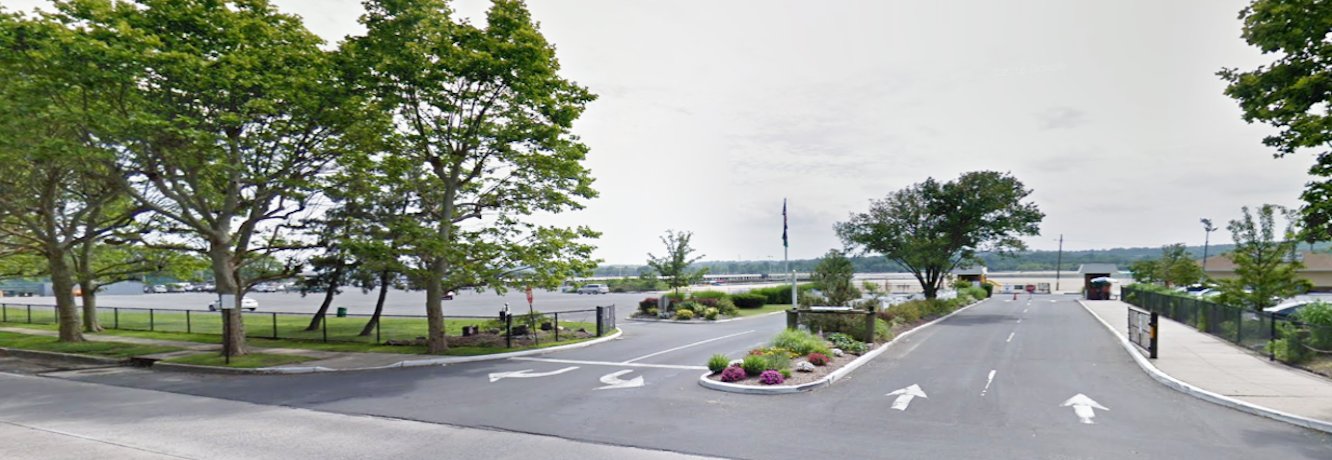Thursday, April 18, 2024
Improving Tappen Beach's water quality
Town looking to replace outdated cesspools

The Town of Oyster Bay has received a $2.3 million grant from New York state’s Water Quality Improvement Program, town officials announced on Jan. 2. The funding will be used to complete a water quality improvement project at Harry Tappen Beach in Glenwood Landing, replacing an outdated system of cesspools and leaching fields.
“Unfortunately, too many of Long Island’s North Shore septic systems and cesspools are outdated,” Town Supervisor Joseph Saladino said in a statement. “Without investment into septic revitalization, dilapidated septic systems have a dramatic and adverse impact on aquatic life in the Long Island Sound, and a potentially devastating effect on the local economy, including fishermen and shell-fishermen.”
John Tassone, deputy commissioner of the town’s Department of Public Works, said that the current cesspool system at Tappen Beach is overwhelmed and no longer functions efficiently. The town is looking to build a new treatment plant with a pump station, along with new leaching fields. If there is enough room in the area, the old cesspools will be abandoned. If the area is too small for new leaching fields, the old cesspools will be removed and replaced by new ones.
Tassone, who also oversees the town’s engineering division, said the new leaching fields will remain underground. The pump station will be housed in a small building roughly half the size of the building by Tappen Beach’s pool, minimizing the effect that the project will have on the look of the area.
The town decided that a new treatment system was needed in 2016, after officials from the Nassau County Department of Health tested beaches on the north and south shores for bacteria following an intense rainfall. Many beaches were closed, including Tappen. Experts examined the septic system, and determined that it was outdated and may have been part of the problem.
“We knew that the system was old and outdated,” Tassone said, “so once we realized that we had to close beaches for multiple days, we knew that this system could be part of the problem.”
Tassone noted, however, that the septic system has never been directly linked to beach closures. All of the closures of town beaches since 2016 have come as a result of bacterial runoff during storms, and none since 2017 have lasted more than 24 hours. Tassone said the new system would prevent closures at Tappen Beach.
Additionally, Tappen is already one of the cleanest beaches on the Long Island Sound, having earned an A rating, designating it as safe for humans, in Save the Sound’s beach water cleanliness study, which concluded in 2018.
Carol DiPaolo, the executive director of the Coalition to Save Hempstead Harbor, said the organization supports the water quality improvment project, and had written a letter to the state in support of the grant. She said that preventing septic systems from leaching into the harbor is important, and the state-of-the-art project should serve the environment and the community well.
“As long as they have a functioning and appropriate system for water treatment,” DiPaolo said, “they can increase use of the beach, which really for us is a jewel . . . We’re very enthusiastic about this, very supportive, and we’re happy the town was able to get the funds needed to do it.”
Hempstead Harbor is renowned for its busy shoreline, DiPaolo said, and keeping beaches open helps the area maintain its identity.
Eric Swenson, executive director of the Hempstead Harbor Protection Committee, said the project will be a major improvement to Tappen Beach. He said the two main problems with Hempstead Harbor’s waters are high levels of bacteria and nitrogen, both of which can come from septic waste. The system will address both issues, Swenson said, and it will further environmental activists’ push to clean up local waters.
“We’ve been working for many years to improve the water quality,” he said, “and this will be a major step to achieve that.”
Heather Johnson, executive director of Friends of the Bay in Oyster Bay, said that clean water benefits Long Island’s economy and capacity for recreation. She said she was pleased to see the town taking the initiative to prevent septic tank issues from polluting the water, and she hopes to see more projects like it across Long Island.
“One of the impacts on our water quality is from failing systems,” Johnson said, “so something like this gets to the heart of the matter.”
Tassone said that officials would still need to submit paperwork before the town receives the grant, although the money has been allotted for the town. Once the funds are secured, a request for proposals will be sent to engineering firms to determine who is interested in doing the work. He said he expected that process to be completed within six months, and that construction should start soon afterward.
HELP SUPPORT LOCAL JOURNALISM
The worldwide pandemic has threatened many of the businesses you rely on every day, but don’t let it take away your source for local news. Now more than ever, we need your help to ensure nothing but the best in hyperlocal community journalism comes straight to you. Consider supporting the Herald with a small donation. It can be a one-time, or a monthly contribution, to help ensure we’re here through this crisis. To donate or for more information, click here.
Sponsored content
Other items that may interest you






